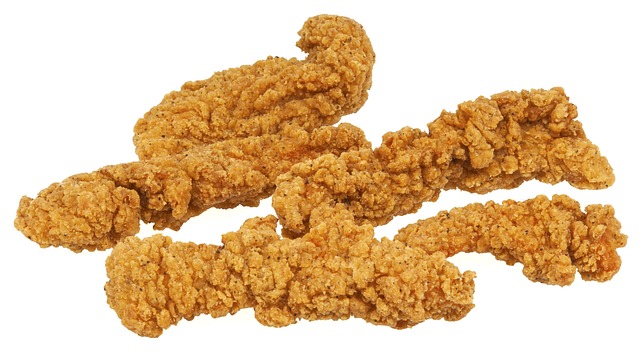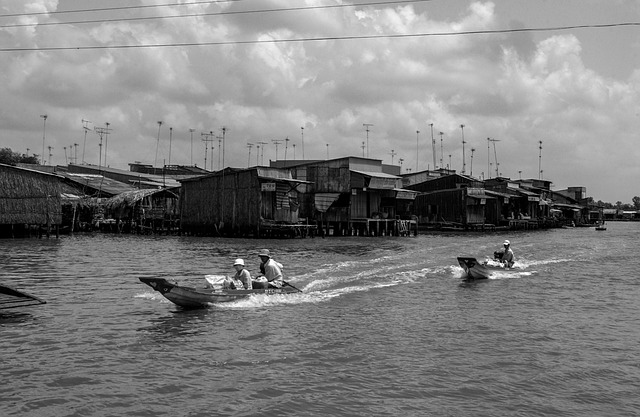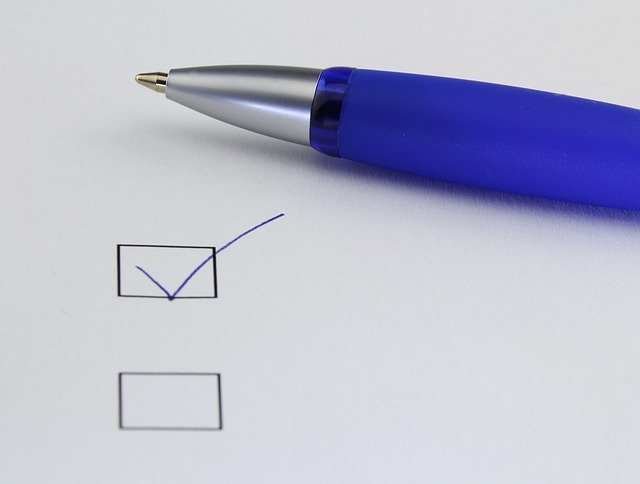Riverside, CA, nestled in a picturesque river valley, is a wine lover's paradise with stringent vineyard regulations fostering quality and innovation. It offers diverse local wineries, unique tas…….
Category: Select vin-verification-riverside-ca
Select Vin-Verification-Riverside-CA: Unlocking the Potential of Verifying Wine Origins
Introduction
Welcome to an in-depth exploration of a revolutionary concept that is reshaping the wine industry—Select Vin-Verification-Riverside-CA. This innovative process, rooted in technology and precision, offers an unparalleled level of scrutiny for wine enthusiasts, sommeliers, and trade professionals worldwide. In this comprehensive article, we will navigate through the intricacies of vin-verification, uncover its global impact, and delve into the various aspects that contribute to its significance. Get ready to discover how a simple verification process is transforming the way we appreciate and consume fine wines.
Understanding Select Vin-Verification-Riverside-CA: Unraveling the Basics
Definition: Select Vin-Verification-Riverside-CA (SVV-RCA) is a sophisticated method used to authenticate the origin and quality of wine by analyzing specific chemical markers present in the grape juice or wine itself. The process involves advanced laboratory techniques, such as gas chromatography-mass spectrometry (GC-MS), to identify unique chemical signatures, ensuring that the wine matches its claimed region and varietal.
Core Components:
- Chemical Analysis: SVV-RCA relies on identifying a range of volatile and non-volatile compounds present in wine. These compounds are known as ‘chemical markers’ and include esters, aldehydes, and various organic acids. Each wine region or varietal has its own distinct chemical profile, serving as a signature for verification.
- Reference Database: A comprehensive database is at the heart of SVV-RCA. It contains chemical signatures of wines from various regions and varieties, serving as a benchmark for comparison. This database is constantly updated to incorporate new findings and ensure accuracy.
- Laboratory Techniques: Advanced laboratory equipment, such as GC-MS, plays a pivotal role in isolating and identifying these subtle compounds. These instruments provide precise measurements, allowing for detailed analysis of wine samples.
- Expert Interpretation: Skilled chemists and enologists interpret the results, matching them against the reference database to make a definitive verification. Their expertise ensures that even minor variations are considered, providing an accurate assessment.
Historical Context: The concept of vin-verification has evolved over centuries, with early methods focusing on physical attributes and regional knowledge. However, as the global wine market expanded, the need for standardized, scientific verification became apparent. SVV-RCA emerged as a cutting-edge solution, combining chemical analysis with advanced technology to meet this demand.
Significance: This verification process is crucial for several reasons:
- Authenticity Assurance: It ensures that consumers receive genuine wines from designated regions, protecting them from counterfeits.
- Trade Confidence: Trade professionals and retailers can rely on SVV-RCA to make informed decisions, fostering trust in the market.
- Regional Identity: Each wine region boasts unique chemical signatures, allowing consumers to appreciate and support specific areas of origin.
Global Impact and Trends: A World-Wide Revolution
SVV-RCA has made a significant global impact, revolutionizing wine culture and trade:
| Region | Impact | Trends |
|---|---|---|
| Europe | Increased transparency in the renowned European wine regions, such as Bordeaux and Tuscany. | Growing demand for organic and sustainable wines, reflected in chemical markers. |
| New World Wines (USA & Australia) | Validation of their unique terroirs, attracting international acclaim. | Rising popularity of varietal-driven wines, with specific chemical signatures becoming sought-after. |
| Asia | Facilitating the growth of high-quality domestic wine production in countries like China and Japan. | Emphasis on traditional and innovative winemaking techniques, influencing chemical profiles. |
Key Trends Shaping SVV-RCA:
- Digitalization: The process is increasingly supported by digital platforms, allowing for efficient data management and global access to reference databases.
- Personalized Wine Experiences: SVV-RCA enables wine enthusiasts to explore specific regions and varieties, catering to personalized preferences.
- Sustainability Focus: As consumers become more conscious, the industry trends towards sustainable practices, with chemical markers reflecting these changes.
Economic Considerations: Driving Market Dynamics
The economic implications of SVV-RCA are profound, impacting various sectors:
Market Dynamics:
- Price Points: Verification can influence pricing strategies, ensuring premium wines maintain their integrity and justifying price points.
- Market Access: Producers from lesser-known regions can gain recognition and access new markets with the backing of SVV-RCA.
- Counterfeit Prevention: The technology acts as a deterrent against counterfeiters, protecting consumers and maintaining market stability.
Investment Patterns:
- Winery Investments: SVV-RCA encourages investment in wineries, especially those adopting advanced technologies and sustainable practices.
- Research & Development: Ongoing research to expand the reference database and improve analytical methods attracts funding from various sources.
- Tourism Boost: Authenticating wine origins can enhance wine tourism, attracting visitors to regions known for their specific varietals.
Technological Advancements: Pushing Boundaries
The field of vin-verification has witnessed significant technological breakthroughs:
- Improved Analytical Techniques: GC-MS technology has advanced, providing faster and more precise results. New methods, such as liquid chromatography (LC), offer additional advantages for certain types of analysis.
- Artificial Intelligence (AI): AI algorithms are being developed to interpret chemical data, potentially increasing efficiency and reducing human error.
- Remote Sensing: Satellite imagery and GIS technology can contribute to soil and terroir analysis, providing valuable insights for verification.
- Blockchain Integration: Blockchain technology offers secure, transparent record-keeping for wine traceability, ensuring the integrity of SVV-RCA data.
Policy and Regulation: Navigating Legal Frameworks
Governing bodies worldwide have recognized the importance of SVV-RCA, leading to various policies and regulations:
- Food Safety Standards: These ensure that chemical analysis meets food safety criteria, protecting consumers from harmful compounds.
- Trade Agreements: International trade organizations promote standardized verification practices, facilitating global wine trade.
- Regional Regulations: Specific regions may have unique rules regarding the use of SVV-RCA to protect their traditional identities and wines.
- Labeling Requirements: Governments mandate clear labeling, allowing consumers to understand the verified origins and qualities of wines.
Challenges and Criticisms: Overcoming Obstacles
Despite its many benefits, SVV-RCA faces some challenges and criticisms:
- Cost Implications: The process can be expensive, especially for smaller wineries, potentially limiting access. However, as technology advances, costs are gradually decreasing.
- Interpretation Subjectivity: While expert interpretation is crucial, there is a degree of subjectivity involved. Standardized protocols and training can mitigate this concern.
- Counterfeiting Evolution: As technology advances, counterfeiters adapt, posing ongoing challenges that require continuous innovation in verification methods.
Proposed Solutions:
- Government Subsidies: Providing financial support to wineries for SVV-RCA adoption, especially in regions with limited resources.
- Industry Collaboration: Winemakers, researchers, and regulators can collaborate to develop cost-effective solutions and standardized protocols.
- Continuous Research: Ongoing research and development ensure the system stays ahead of counterfeiting trends.
Case Studies: Real-World Success Stories
1. Bordeaux, France – A Legacy of Quality
In Bordeaux, SVV-RCA has been instrumental in maintaining the region’s legendary reputation. By verifying the chemical signatures of each vineyard and grape variety, winemakers ensure consistent quality. This practice has allowed them to identify unique micro-terroirs, leading to niche market opportunities. The result is a diverse range of high-quality wines that cater to global tastes.
2. Sustainable California – Chemical Markers of Eco-Friendly Wines
California’s wine industry has embraced sustainability, and SVV-RCA supports this trend. By analyzing chemical markers, winemakers can prove their commitment to organic practices. This verification process attracts environmentally conscious consumers, fostering a market for sustainable wines. The region’s diverse climate and soil types contribute to a rich tapestry of chemical signatures.
3. New Zealand – A Global Game-Changer
New Zealand’s wine industry gained international recognition with its unique Sauvignon Blanc and Pinot Noir varieties. SVV-RCA has played a pivotal role in showcasing these wines’ distinct chemical profiles, attracting global attention. The country’s focus on quality and innovation ensures that its wines maintain their competitive edge in the world market.
Future Prospects: Unlocking New Frontiers
The future of Select Vin-Verification-Riverside-CA looks bright, with several growth areas and emerging trends:
- Global Expansion: As SVV-RCA becomes more accessible and affordable, its adoption will likely increase worldwide, ensuring the authenticity of global wine production.
- Personalized Wine Journeys: Advanced technology will enable consumers to embark on personalized wine journeys, exploring regions and varieties based on their preferences.
- Integration with Blockchain: Blockchain technology integration will enhance transparency, traceability, and consumer trust in the wine industry.
- AI-Driven Analysis: AI algorithms will play a more significant role in chemical data interpretation, improving efficiency and accuracy.
- Sustainability as a Competitive Advantage: Winemakers emphasizing sustainable practices will leverage SVV-RCA to differentiate their products in the market.
Conclusion: A Transformative Journey
In conclusion, Select Vin-Verification-Riverside-CA is more than just a process; it’s a transformative journey towards authentic, transparent, and globally appreciated wine culture. By unraveling the chemical secrets of wines, this technology empowers consumers, trade professionals, and winemakers alike. As we navigate the future, SVV-RCA will continue to shape the way we interact with fine wines, ensuring that each sip tells a story of authenticity and quality.
FAQ Section: Answering Common Queries
Q: How does SVV-RCA differ from traditional wine tasting?
A: While wine tasting assesses sensory qualities, SVV-RCA focuses on chemical analysis to verify origin and quality. Traditional tasting involves the palate, while SVV-RCA relies on scientific methods.
Q: Can SVV-RCA detect fake wines completely?
A: It is an extremely powerful tool but not infallible. Continuous technological advancements and industry collaboration are crucial to stay ahead of counterfeiters.
Q: Is SVV-RCA only for high-end, premium wines?
A: No, it can be used for all types of wines, from everyday table wines to premium vintages. The process is versatile and applicable across the industry.
Q: How does SVV-RCA impact wine tourism?
A: By authenticating regional wines, SVV-RCA attracts tourists interested in specific varietals and terroirs. It enhances the overall wine tourism experience and contributes to local economies.
Riverside CA: Proven Track Record in Vin Verification Services
Vin verification in Riverside, CA, is crucial for car buyers, sellers, and businesses to ensure vehicle legitimacy, protect against fraud, and meet California's wine law compliance, especially re…….
24/7 Support: Enhancing Customer Care in Riverside, CA
Local winery inspection services in Riverside, CA's thriving wine sector are vital for 24/7 support, ensuring equipment issues, health & safety concerns, and legal requirements like vin verif…….
Protect Your Purchase: Top Accuracy in Riverside CA VIN Verification
In California's wine industry, especially Riverside, accurate VIN verification is vital for buyers and sellers to ensure vehicle history transparency, track fraud, comply with winery laws, and sa…….
Instant Vehicle History Checks: Riverside Verification in California
Vehicle history checks through services like Select vin-verification-riverside-ca are crucial for safety, legality, and consumer trust in CA, especially within industries like agriculture and food tra…….
Uncover Vehicle History: VIN Verification in Riverside, CA
Understanding VIN verification is crucial for buying used cars online in Riverside, CA. This process uses a vehicle's unique ID to access its history, including ownership, accidents, and maintena…….
Streamline VIN Verification in Riverside, CA with Expert Guidance
Understanding VIN verification is crucial for Riverside, CA's wine industry, ensuring authenticity and consumer protection by tracking bottles from vineyard to glass. For winery owners, it mainta…….
Uncovering Car History Online: Riverside’s VIN Verification Guide
Online car history reports via VIN verification in Riverside, CA, offer transparent access to vehicle details like ownership, accidents, and maintenance for buyers and dealers, enhancing safety and fa…….
24/7 Support: Riverside CA’s Vin Verification Hotline Success
Riverside, CA river wineries face challenges like equipment failures and safety concerns, addressed by a 24/7 hotline offering expert support for protocols and local regulations governed by the Rivers…….
Unleash Peace of Mind: Trusted Car History Reports
In Riverside, CA, where detail and accuracy matter, Select vin-verification-riverside-ca offers comprehensive vehicle history reports and VIN checks, crucial for buying used cars. These services mirro…….









